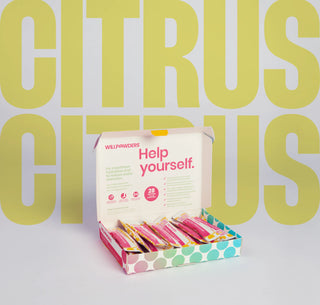
HELP! I'm in Perimenopause!
Growing hairs on your chin and losing it on your head? Couldn’t think of anything worse than getting frisky? Developed a tummy tyre for the first in your life? Put your keys in the fridge and left the shopping in the shop - AGAIN? Feel like every joint in your body is out to get you? Yelled at your partner for breathing too loudly? Sweating profusely in Arctic conditions? Haven’t slept in months? Yep… you may be in perimenopause!
Menopause
It’s safe to assume that, as women, we’ve all heard of the menopause and, based on common knowledge, most of us expect to live relatively normal and hormonally balanced lives until that point. Wrong!
Unfortunately, that’s not quite how it goes. Menopause doesn’t happen overnight. Starting around the age of 30-45 and lasting anywhere from a few months to an entire decade, your hormone levels begin to change, and your ovaries start producing fewer eggs as part of the transitional stage known as perimenopause.
It can be a confusing time for women – as hormones change, symptoms come and go, taking us on a hormonal rollercoaster ride, much like a pubescent teenager. A lot of us just don’t know where we are from one month to the other. To make matters worse, perimenopause is often misdiagnosed as depression by medical professionals and most women under 40 are completely dismissed. Labelled as bonkers, irrational and downright unreasonable for wanting to know what the hell is wrong with them.
If you are lucky and are diagnosed with perimenopause accurately, in a timely fashion (don’t hold your breath) and have avoided a prescription for antidepressants (because you’re not depressed!), the likelihood is you have been handed some HRT. Whilst for some women, this can be like a golden chalice to life, a magic potion that will completely restore you to your former self, setting you free from the hormonal hell; however, for others, it’s just not that simple. It’s important to note that other health conditions can mimic the symptoms of perimenopause, for example, high blood pressure, type 2 diabetes, thyroid and heart conditions; therefore, it is so important that you return to your doc if you’re still suffering even after being given HRT.
Whilst the idea and hormonal reality of your body preparing to stop ovulating and shifting into menopause may fill you with a sense of dread, there are many nutritional and lifestyle hacks that can help you to maintain your energy, good spirits and overall sense of wellbeing.
What Happens to my Hormones during Perimenopause?
During perimenopause, progesterone and oestrogen start to decline very slowly over several years.
Progesterone tends to decline gently, while oestrogen has a tendency to go up and down like a yo-yo, taking your emotions and physical state with it.
Irregular periods, mood swings, hot flashes, insomnia, depression, bloating and breast tenderness are all symptoms of perimenopause, which can make life feel arduous and joyless.
To make matters worse, your testosterone starts to drop too, leading to a decreased libido, fatigue, loss of muscle mass and fat gain.
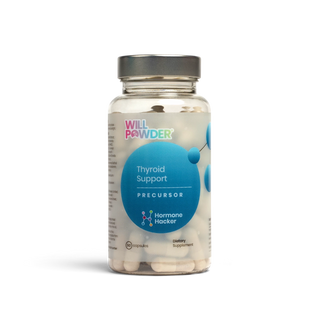

Could my Thyroid be to Blame?
The symptoms of perimenopause and an underactive thyroid are so similar. It’s a good idea to test your thyroid function if you do start to experience any of the aforementioned symptoms. An easy way to test this at home is to take your temperature three hours after waking. If it’s below 36.1c, you may have an underactive thyroid and it’s worth investigating further with your doctor.
Omnos and Thriva both do great female sex hormone tests, which test for TSH, T3 and T4. These at home tests will confirm if your thyroid is playing up and will arm you with the information you need to speak to your doc.
If your results come back as confirmed hypothyroidism (meaning your thyroid is underactive), it may be a good idea to get treated with bioidentical thyroid hormones. By protecting your thyroid you can stave off perimenopause. These tests will also give you greater insight into your other hormonal levels.
You might also benefit from taking Our Thyroid Support which will rev up your metabolism and help your body to improve the performance of your thyroid gland.
Natural Solutions to Rebalance your Hormones and your Sanity
Just because perimenopause is a natural process, it doesn’t mean that you have to suffer. The combination of a healthy diet, supplementation and lifestyle, can support your hormone health and prevent them from negatively affecting your mental and physical state. It’s as simple as providing your body with the right vitamins and minerals, keeping active and engaging in self-care practices that nourish your body through the inevitable transition.
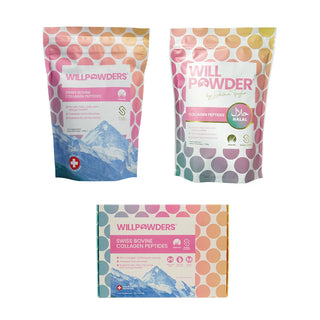

Maintain Smooth Skin, Shiny Hair and Strong Nails
During perimenopause, the decline of oestrogen and collagen begins to reflect unfavourably on our appearance in the form of wrinkles, dry skin, brittle nails and thinning hair.
Support your body’s natural collagen production and improve skin hydration and plumpness with our Bovine Collagen Peptides.
You can also boost your natural oestrogen by eating plenty of oestrogen-rich foods such as organic tofu, flaxseeds, pumpkin seeds, nuts, pulses and beans.
Crush Cravings and Prevent Weight Gain
For many women, the signs of perimenopause aren’t that obvious and can often be dismissed as something else – such as weight gain. But lower levels of oestrogen, insulin resistance, an increase in cortisol and a slower metabolism can all lead to increased cravings and carrying extra weight, specifically around your tummy (yes - the famous middle-aged spread!).
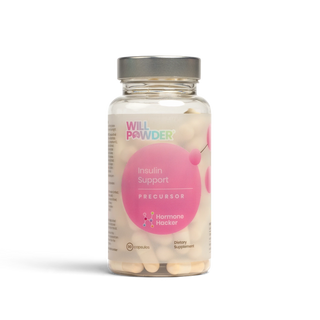

Insulin Resistance
Perimenopausal and menopausal women are at an increased risk of insulin resistance, so reducing and limiting your sugar and refined carb intake as much as possible will help. Our Insulin Support is the perfect addition to your supplement store.
A protein-based diet, rich in good fats will mitigate symptoms often exacerbated by high carbohydrate (sugar) diets. Remember low-fat means high sugar! Follow The Glucose Goddess on Instagram for easy to understand tips for smoothing insulin spikes.
When you’re feeling peckish opt for our all-time favourite, crave-crushing and energising fatty coffee. Adding a teaspoon of MCT Keto Powder will ensure you stay away from the insulin spiking snacks and help you to avoid the perimenopause tummy. It really is an absolute lifesaver!
Future-Proof your Heart, Bones and Joints with Exercise
As your hormone levels change, you might experience soreness and stiffness in your muscles and joints.
Exercise is fundamental in helping you manage symptoms of perimenopause and future-proofing your heart, bone and joint health. Regular exercise, even if it’s just a 15-minute walk per day, can make such a huge difference to your hormonal balance and sense of wellbeing.
Moreover, strength training only 2 times a week builds muscle mass, bone density, confidence and overall feelings of bad-assery.


Jumpstart your Energy and Fight Fatigue
Nearly 50% of perimenopausal women report physical and mental exhaustion. As if oestrogen loss, hot flashes and night sweats, making sleep impossible, aren’t bad enough, we are still expected to parent, have a career and maintain a social life like nothing’s changed.
The ultimate fatigue-fighter is sleep itself, but sometimes it’s hard to come by. WillPowder’s L-Theanine can help you to de-stress, relax and stack up zzz - it’s like a save and pause button for your mental load, ensuring that you wake up feeling refreshed and ready to face the day.
When all else fails, bring on the nootropics! For that afternoon pick-me-up, brain fog banishment and to counteract that painful sleep deprivation (which is its own special kind of torture), mix a sachet of Brain Powder into water to regain focus, clarity and the ability the cross the day’s finish line.
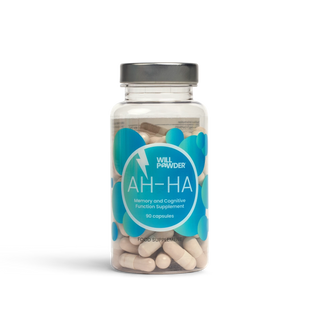

Banish Brain Fog
It’s just the absolute worst! It's like someone has taken your brain out and replaced it with cotton wool.
During perimenopause, a lot of women report increased issues with short term memory and simply finding words. You can go from being the most articulate Goddess in the room, who everyone reveres and could listen to all day, to sounding like a toddler learning to read. You know it’s bad when you start to develop your own language, only you understand! Your brain becomes filled with ‘thingmajigs’ and ‘whatnots!’
Ah-Ha has been formulated to give you your words back and reduce short term memory loss. No longer will you find yourself tucking the dog in and letting your child out for a wee in the garden! We recommend taking AH-AH for three months to let it work its memory magic.
Take Care of Yourself
Although you may not like what perimenopause does to your brain and body, unfortunately, it’s inevitable, ladies. However, if you make your health your priority, you will soon feel and look your best during this transitional phase.
It may feel like an uphill slog, a traumatic experience you would rather skip, which is why it is so important to look after yourself. WillPowders is here for you. As a team of perimenopausal women, we’ve got you! Every product that we have created has you in mind. Together, we can beat the symptoms of perimenopause.
Disclaimer
Our blogs are written with love in the hope that they go some way in helping you feel like the rockstar you are, and whilst we do our due diligence, research like maniacs and fact check our stuff, we know everyone’s journey is different. They are intended to educate and empower you, not usurp medical advice. We would never advise you to stop, adjust, or modify any prescription medication without the direct supervision of your healthcare practitioner, but don’t be afraid to talk to your doctor about your new found knowledge, brought to you by the marvels of nature because they don't know everything! Blogs are always informed by Davinia but often written by a member of the team. Not all blogs reflect Davinia's experiences and sometimes provide alternative perspectives

 Collagen
Collagen
 Protein
Protein
 MCT
MCT
 Electrolytes
Electrolytes
 Vitamins & Minerals
Vitamins & Minerals
 Hormones
Hormones
 Nootropics
Nootropics
 Kombucha
Kombucha
 Biohacking Books
Biohacking Books
 Bundles
Bundles
 Accessories
Accessories












